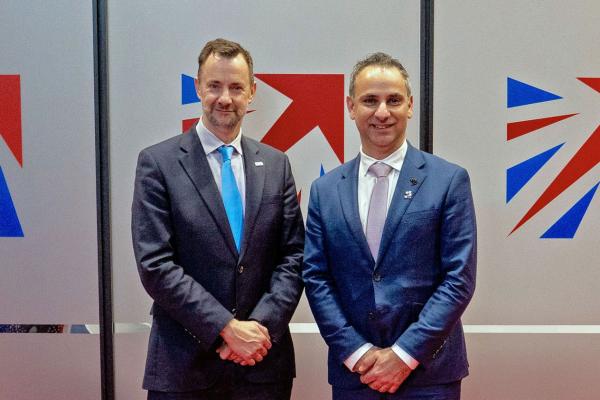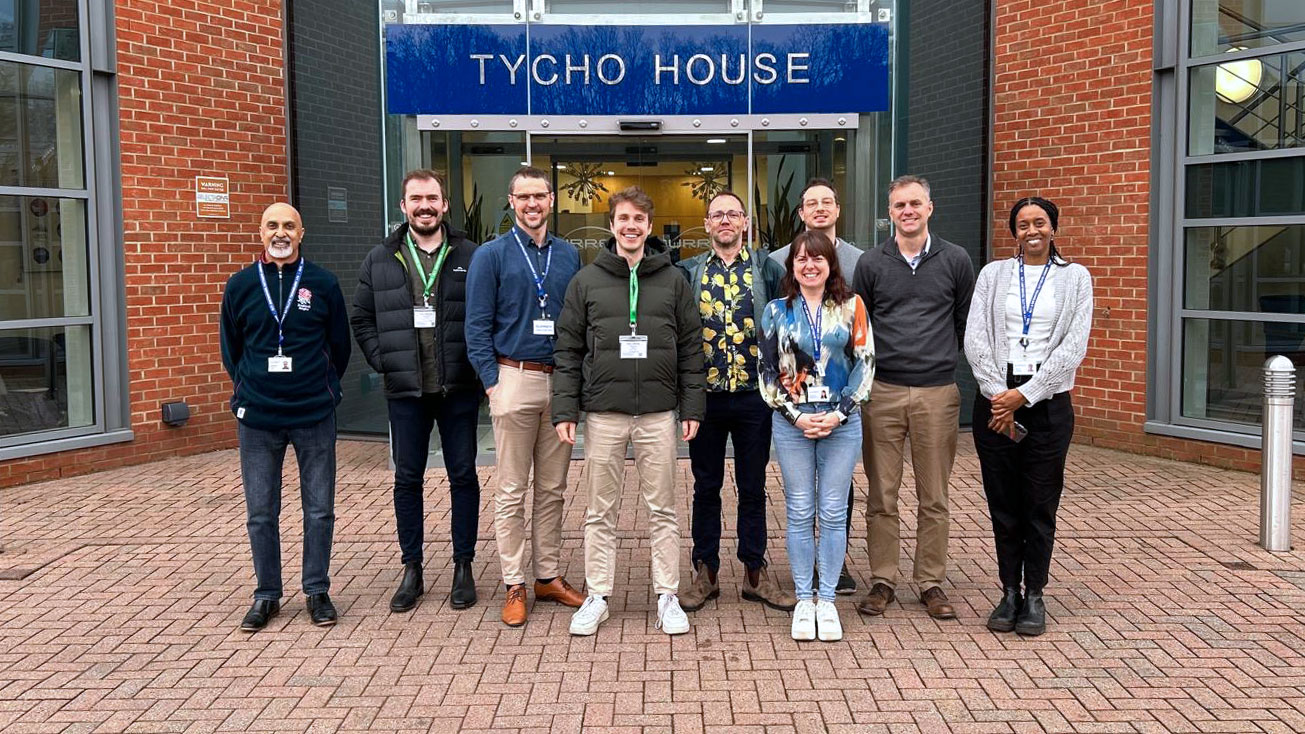Since the framework was signed four years ago, the UK-Australia Space Bridge has unlocked many new opportunities for collaboration, innovation, and economic growth across both nations’ space sectors. Now, the partnership between the UK and Australia approaches a major new milestone as three ground-breaking projects under the UK Space Agency’s International Bilateral Fund (IBF) near completion.
The IBF launched in 2023 to support collaborations between UK organisations and international partners on cutting-edge research and commercial ventures. Co-funded by the Australian Space Agency and UK Space Agency, with the Australian contribution amounting to up to A$3 million, the three IBF projects are focused on enhancing water quality monitoring, advancing autonomous agriculture, and improving space sustainability.
All three projects demonstrate the tangible benefits of cross-border partnerships, strengthening space capabilities, and contributing to solutions with worldwide impact. They also exemplify what the Space Bridge was designed to do: bring together the best in science and technology across both countries to tackle global challenges through space.
Enrico Palermo, Head of the Australian Space Agency, looks forward to seeing the projects serve communities in Australia, the UK, and beyond.
“International collaboration enables Australia to address global challenges while also growing the value and capability of the Australian space sector through our contributions,” Mr Palermo says.
“Our partnership with the UK is a perfect example of this – and we’re pleased to celebrate the achievements of the three projects supported through the IBF as they conclude.”
Dr Paul Bate, CEO of the UK Space Agency, adds his optimism on working with Australian colleagues to advance space technology and research.
“The UK-Australia Space Bridge continues to strengthen our partnership, driving innovation and creating new opportunities for both countries,” Dr Bate says.
“With the latest co-funded projects under the International Bilateral Fund, we are working together to harness the vast power of space to protect and benefit lives on Earth, tackling global challenges while deepening collaboration between our space sectors.”
“The UK-Australia partnership remains a priority, and we look forward to seeing these projects deliver real impact.”
Co-funded Project Spotlights
AquaWatch AUK: Advancing Water Quality Monitoring from Space
Led by Surrey Satellite Technology Ltd (SSTL), AquaWatch AUK is improving water quality monitoring by using Earth observation, in-situ data, and data modelling. Now in its second phase, the project is laying the groundwork for a mission to provide critical insights into coastal and inland water health.
Key achievements
- United stakeholders from academia, industry, government, and civil society to define water quality monitoring requirements.
- Identified priority water quality issues and user needs across the UK, laying a strong foundation for future monitoring efforts.
- Strengthened UK-Australia collaboration through CSIRO and the UK-Australia Space Bridge, enhancing partnerships.
- Developed innovative payload and mission concepts focused on hyperspectral instruments, positioning the UK for leadership in a future water monitoring mission with potential ESA, NASA, and Australian collaboration.
Consortium partners
SSTL (UK), CSIRO (Aus), Pixalytics Ltd (UK), STFC (UK), Assimila Ltd (UK), SmartSat CRC Ltd (Aus), Airbus Australia Pacific Limited (Aus), Cefas (UK), UKCEH (UK), and the University of Stirling (UK).
Dr Sabrina Pottinger, Senior Project Manager at Surrey Satellite Technology Ltd, says:
"AquaWatch AUK has enabled experts from a variety of fields within water quality, Earth observation, and satellite manufacturing to come together and shape a future mission that will support increased understanding of global coastal and inland water quality issues."
Vertical Future: Autonomous Agriculture for Space and Earth
This project is developing advanced imaging and sensor technology for remote monitoring of plant growth in controlled environments. Its outcomes will support astronaut health and nutrition on long-duration space missions in the future, through the creation of robust system architecture, communications protocols, and processing. In addition, the project will help transfer lessons learned about sustainable agriculture in space back to Earth, by simplifying the pathway of data from in-space plant growth systems to agronomists on the ground.
Consortium partners
Vertical Future (UK), University of Cambridge (UK), University of Adelaide (Aus), University of Western Australia (Aus), University of Southern Queensland (Aus), Axiom Space (USA), Saber Astronautics (Aus, USA), South Australian Space Industry Centre (Aus).
Aleksandar Anderca, Production & Deployment Engineering Manager at Vertical Future, says:
“Our researchers are developing new plants and technologies to help sustain us far beyond our skies. On Earth, these advancements will help build more sustainable and climate-resilient farms, foods, fuels, and medicines for us all.”
Watch on YouTube here.
University of Strathclyde: AI for Space Sustainability
As space becomes more congested with satellites and other objects, there is a growing risk of collisions impacting everyday lives on Earth through the loss of vital services. By accelerating the adoption of AI technologies in space, such as the use of machine learning to help predict the motion of space objects, this project is paving the way for a safer space domain with reduced risk of collisions. It also sets the foundations for an international virtual institute dedicated to advancing AI in space sustainability.
Key achievements
- Hosted two successful AI for Space Sustainability workshops in 2024.
- Nominal Systems enhanced their commercial software with AI-driven digital twin capabilities, enabling high-fidelity simulations of satellite systems and components. Their main demo showcases an AI-augmented battery simulation.
- Collaborated with the University to integrate AI-powered synthetic tracking data generation, improving conjunction analysis.
Consortium Partners
University of Strathclyde (UK), Massachusetts Institute of Technology (US), Columbiad (Canada), University of Arizona (US), University of Waterloo (Canada), GMV UK, LIFT ME OFF Ltd UK, The Alan Turing Institute (UK), Nominal Systems (Aus).
Prof. Massimiliano Vasile Ph.D., FRAS, Project Lead from the University of Strathclyde, says:
“Sustainability is one of the biggest problems that we are facing at the moment. Without a sustainable approach to accessing space, we will not be able to access space in the future due to congestion. We are trying to see how AI can help with the management of traffic in orbit.”
Watch on YouTube here.

International partnerships
Working together towards a common goal
Main image caption (L-R): UK Space Agency CEO, Dr Paul Bate and Head of the Australian Space Agency, Enrico Palermo


